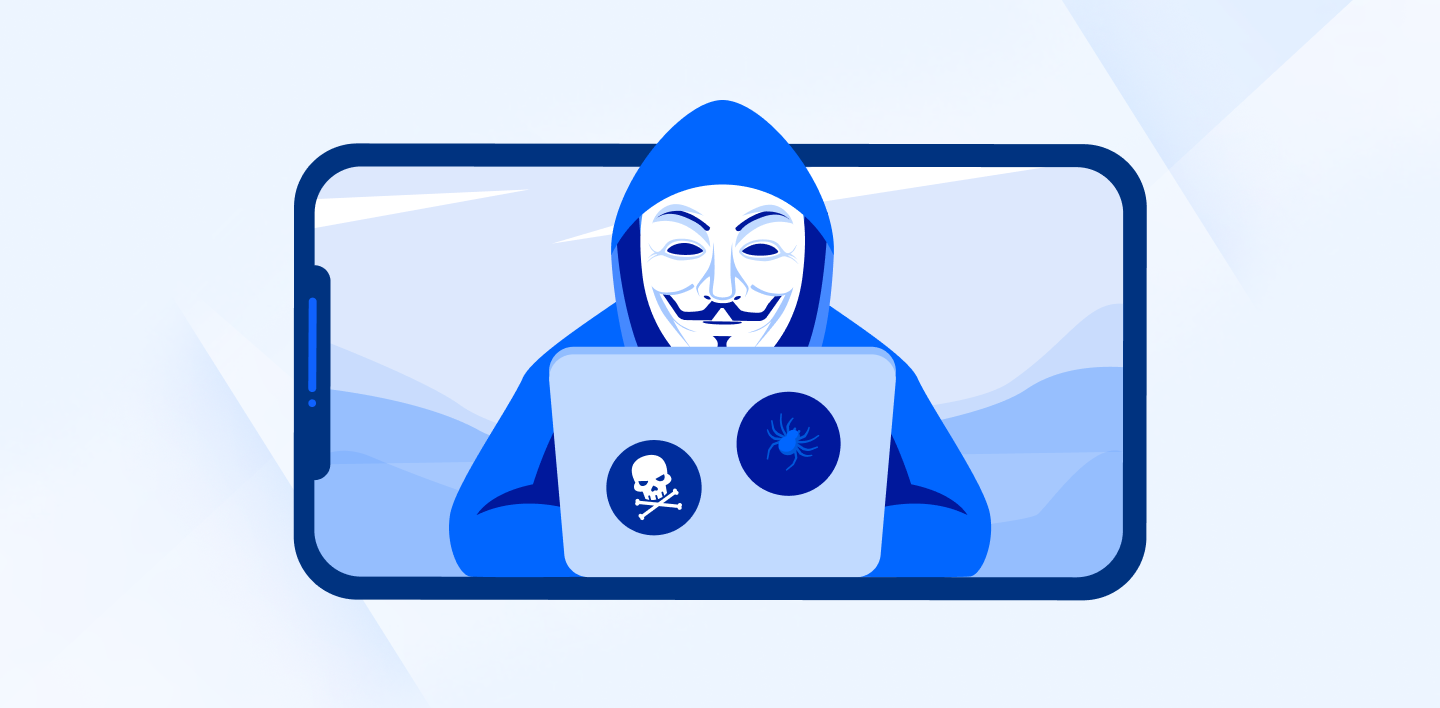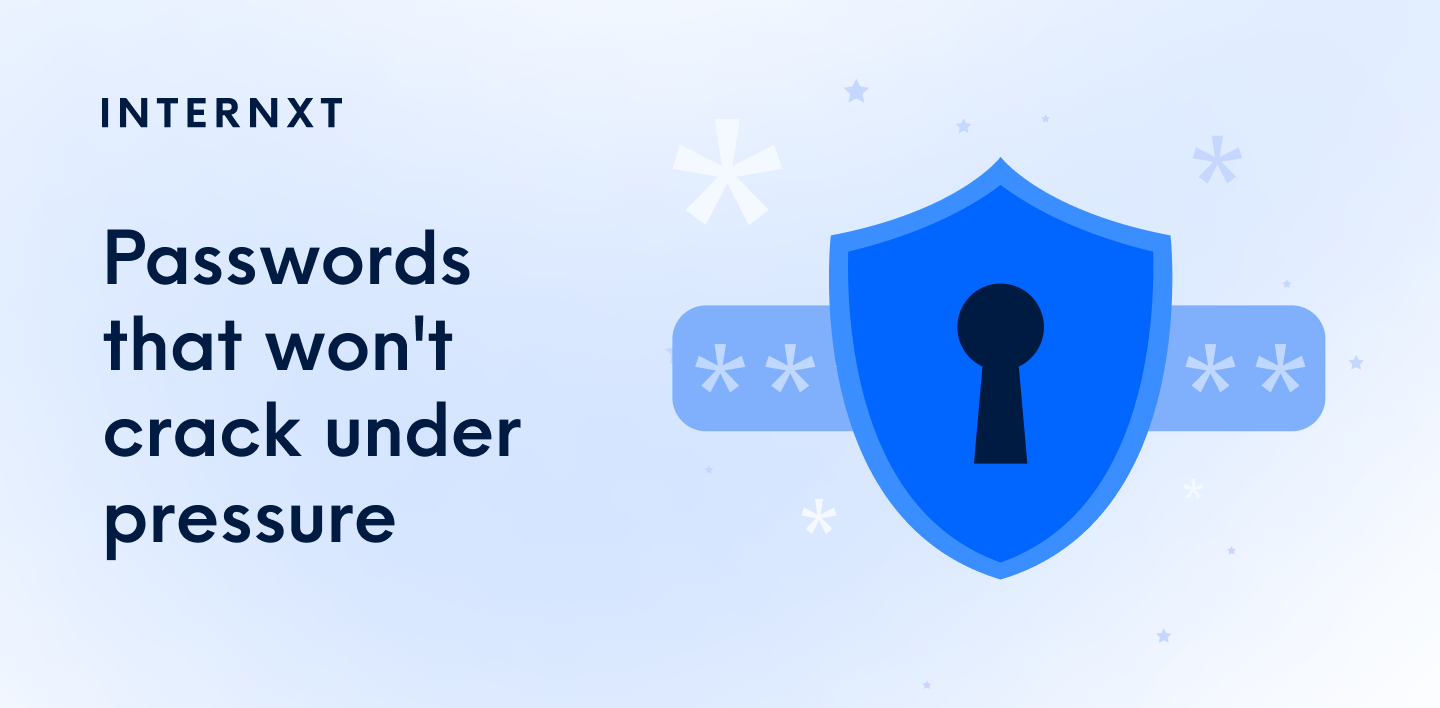10 Signs That Your Phone Is Hacked

Did you know that 60% of all cyberattacks originate from mobile devices?
Today, our smartphones are almost invaluable to us. They hold everything, from our social media accounts to banking apps, personal photos and videos, and important contacts.
However, hackers have also adapted to this reality. So, the million-dollar question you might ask yourself is: “How can you tell if your phone is hacked?”
This post will share with you the key signs that you’re using a hacked phone and ways to improve mobile security.
10 Signs That Your Phone Is Hacked?
Has your phone been acting weird? Maybe you’ve come across some strange apps you don’t remember installing. Or, maybe you’ve noticed unusual activity (calls or text messages).
In many cases, all of this might just be a coincidence. However, in this golden age of cyberattacks, you should be extra vigilant. Here are some of the key signs your phone might be hacked.
Lagging
While it’s completely normal for smartphones to slow down as they get older, lagging doesn’t just start overnight. So, if you notice a significant drop in performance, such as slower unlocking, screen lagging, and higher app wait time, you might have malware on your phone.
This usually happens when you download malicious files or applications from unofficial sources or torrents.
Pop-Up ads
Another common sign you’re using a hacked phone is a more frequent bombardment of pop-up ads. Hackers use these ads to hide adware on sites and apps.
So, when you accidentally click on one, the virus starts running in the background while you remain blissfully unaware. Fortunately, these ads usually appear on shady, untrusted sites, especially those without HTTPS encryption.
Quicker battery drainage
Suppose your phone battery starts draining faster than usual without any hardware damage or major update. In that case, you might be a victim of a hack, especially if you own a relatively newer model.
Your battery drains faster due to malware and spyware programs running in the background. Fortunately, you can go to Settings on your Android device or iPhone to check which apps are consuming the most power. Doing so will let you know if you have a rogue or unknown app on your device.
Unusual social media activity
According to Gitnux, nearly 1.3 billion social media accounts are hacked every month. This stat alone should put you on high alert, especially if you receive an alert about suspicious activity from any account linked to your phone.
Hackers with access to your Twitter, Facebook, or other accounts via your phone can send strange messages or post malicious content to harm others.
Unrecognized calls or text messages
Another important sign of a hack or data breach is when you receive calls or texts from unrecognized numbers. In some cases, you may not even get the chance to verify their authenticity.
Hackers can also use your iPhone or Android device to send messages to your contacts with malicious content. So, if you receive a text or call from a number you don’t recognize, report it as spam or block it, just to be safe.
Unusually high data usage
If your web and application usage remains unchanged, but you notice a spike in your data consumption, it could be a sign of a phone hacker. These criminals often hijack phones to run malicious apps in the background that can quickly drain your data. So, you should check your phone for any suspicious apps and delete them.
Increased phone temperature
Even the latest phones tend to get hot when used extensively. However, if your phone is getting hot when not in use, it’s a sign that malicious software is causing it to heat up.
Malfunctioning
Is your phone freezing, crashing, or rebooting on its own? Are you not receiving calls or texts? Are apps failing to load or becoming unresponsive? These are all signs that a hacker is using most of your phone’s processing power and causing it to malfunction.
Strange website access
Have you ever accessed a familiar site that looks too different from your last visit? When this happens, it’s not always due to a design change or content update.
Chances are your phone has been infected with malware and is not redirecting you to a counterfeit site to get access to your credentials.
Changed phone settings
In some cases, hackers who get access to your phone can change its settings. For example, they can turn on Bluetooth to transmit data or infect other devices with malware. So, if you notice changes in your phone settings that you didn’t do, it’s likely due to a hack.
Can You Tell if Someone Has Access to Your Phone?
Thanks to modern digital advancements, it’s possible for anyone to snoop on their phone if they have the required tools and software. The last thing you want as a user is to have access to your device remotely. Fortunately, you can tell if someone is snooping on your phone and take some security precautions.
For example, you can’t hide apps on phones. So, if you come across an app that you didn’t install, you can check when it was installed from Settings.
Secondly, if you’ve set up activity logging via your Google account on your Android device, you can see what’s been happening by visiting My Google Activity. For instance, you can check which sites the intruder visited or what apps they used.
Furthermore, the newest versions of iOS and Android allow you to keep device activity logs. For example:
- You can go to Screen Time on your iPhone settings to check usage for up to a few days;
- On Android devices, you can tap on Notifications and go to History to check all recent alerts. So, if there’s been an intruder on your phone, you can find traces of their activities.

What is the First Thing You Do When You Get Hacked?
No matter how vigilant you are when it comes to protecting your devices and information, hacking is often inevitable.
So, if you do become a victim of a phone hack, below are the steps you should take right away:
Change Your Passwords
The moment you become a hacking victim, the first thing you should do is change all your passwords by using a strong password generator that creates passwords that are more resistant to hackers.
If you suspect your account has been hacked, change all your passwords immediately, especially for your:
- Social media app passwords
- Banking app passwords
- Screen lock passcode
- WiFi password
- Work application and network access passwords, etc.
Secure Your Login Process
Once you've created a strong password you should take additional steps to secure your logins. For instance, most modern apps support biometric authentication, so you can use your fingerprints to access apps.
You can also enable two or multi-factor authentication with one-time passwords and registered device verification to add more security layers.
Can You Remove Hackers from Your Phone?
Fortunately, there are steps you can take to remove hackers from your phone. The fastest and easiest way is to factory reset your phone. However, your phone probably carries a lot of important information, including (but not limited to):
- Banking apps
- Social media accounts
- Photos and videos
- Personally identifiable data
- Contacts
A factory reset will remove all the data above, along with third-party apps. So, you’ll need to set up your phone again from scratch.
If you’re not up for this method, you can follow the step-by-step guide below to unhack your phone:
- Look online for the most recommended antivirus software for your smartphone;
- Download the antivirus from official sources only – Google Play Store, Apple App Store, product website, etc.;
- Install the app on your phone and then log in or register;
- Scan your phone for malicious software or signs of intrusion;
- Once the scan is complete, the software will remove untrusted apps and recommend changes, such as enabling real-time protection.
Bonus Tips to Improve Phone Security
Undoubtedly, many modern antivirus solutions do an excellent job of removing hackers from your phone. However, you can be more proactive and take steps to minimize your security risk with the following tips:
Turn Off Wi-Fi Strategically
Most hackers gain access to smartphones through Wi-Fi. So, one of the easiest ways to prevent hacks is by turning off your connection to the internet when you don’t need it.
For instance, according to ZDNet, over 49% of attacks occur at night on weekdays following work hours.
So, unless you’re a night owl working during these hours, you should turn off your phone’s Wi-Fi to secure your device from online threats. If you’re not expecting any calls, you can also turn on Airplane Mode.
Update Your Phone Regularly
Most cyberattacks occur when hackers exploit vulnerabilities in outdated software or firmware. So, one way to improve phone security is to regularly update the OS and apps to patch the weak points hackers are looking to target.
Use a Password Manager
Managing passwords can be difficult, especially if you have multiple apps that require password authentication for access. Secondly, having a single password for all apps and devices can make it much easier for cybercriminals to steal data.
However, using a password checker and downloading a password manager, you can create strong passwords with long chains of alphanumeric and special characters for all your apps and automate the login process.
Plus, you’ll only need to remember one password. Many password managers also support biometric authentication via fingerprint scanning.
Use a VPN
Whether you’re connected to a public or private network, you should connect to the internet using a virtual private network.
If you are wondering what a VPN is, here’s the main idea behind it. This powerful encryption solution hides your IP address and traffic, making it nearly impossible for hackers to find and hack your phone. So, when you browse the web, your real location and the data you transmit will be hidden.
Delete Unverified Apps
Another step you can take to proactively improve phone security is deleting apps you downloaded from third-party sources instead of official sources like Apple Store or Google Play Store. If you don’t have a choice, at least do some research on the developers and look for reviews.
Lock Sensitive Apps
App locking is one of the best security tools you can have on your phone. It allows you to protect certain apps or sensitive information using password protection or biometric authentication. For instance, you can use it to store your banking apps, gallery, or instant messaging apps.
Don’t Click on Ads
One of the best practices you can adopt when using your phone to access different websites is not clicking on ads. As mentioned above, many shady sites are filled with ads that trigger malware downloads, even if you click on them by accident. You can take a step further by installing an ad blocker app or extension.
Clear Your Browsing History and Cache Regularly
Finally, you can reduce your security risk by removing web trackers when accessing browsers and apps. To do this, you simply have to delete your browsing history and application cache regularly.
Turn Off Geotagging
Many social media platforms automatically upload photos to the internet when you turn on the geotagging feature. The issue with this is that most modern smartphones embed location tags into photo files. Some cybercriminals will buy a tracking device by Apple, Samsung, or others, to track and monitor a person's movements without their knowledge.
Using your geotags, hackers can easily find out your location on Facebook or other apps transmitting synthesized GPS signals and writing OS-level codes to spoof on your device. One way you can improve phone security and prevent hacks is by turning off geotagging when taking and uploading photos.
Don’t Use Public Charging Ports
Unfortunately, cybersecurity threats in airports, restaurants, libraries, and other public spaces don’t end with compromised Wi-Fi networks. Modern hackers have devised a new, more sophisticated hacking technique called juice jacking using data cables.
When you connect the compromised shared cable to your phone, hackers can transfer its data and even get complete access to your phone. So, if you plan to charge your phone in a public space, try to carry a personal cable with you instead of connecting it to the ones available. There’s no way to tell which cable has been tampered with, so you shouldn’t risk it.

Is My Phone Hacked?
From social media to online transactions, our personal lives have become inseparable from our smartphones.
However, due to the looming cybersecurity threats, you must practice excellent digital hygiene and protect your devices from hackers.
Hopefully, with our signs and tips, you can identify and eliminate the presence of malware or intruders stealing your data, money, or identity. For more interesting reads related to smartphone security and privacy, tune into Internxt to learn about the best ways you can protect your privacy.

